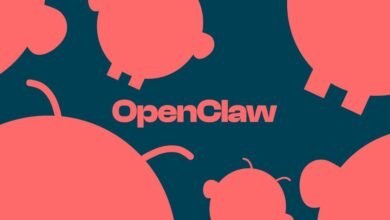AI Will Eliminate Entire Job Categories, Warns OpenAI’s Sam Altman

▼ Summary
– Open the menu to access the Market flag option.
– Switch the Market flag to select your desired country.
– This action provides targeted data specific to the chosen country.
– The feature allows customization based on geographic preferences.
– No additional steps are mentioned beyond switching the flag.
Artificial intelligence is poised to transform the workforce in ways we’ve never seen before, with entire job categories potentially disappearing according to OpenAI CEO Sam Altman. His recent warnings highlight how rapidly advancing AI systems could reshape employment landscapes across industries. While technological progress often creates new opportunities, this wave of innovation may displace workers faster than society can adapt.
The OpenAI leader suggests we’re approaching a tipping point where AI capabilities will surpass human performance in numerous professional domains. Routine cognitive tasks, data analysis, and even creative work face potential automation. Unlike previous industrial revolutions that primarily affected manual labor, this shift threatens white-collar positions previously considered secure.
Customer service roles, content creation jobs, and legal research positions appear particularly vulnerable to AI disruption. Language models can already handle basic inquiries, draft documents, and analyze case law with surprising accuracy. As these systems improve, companies may find human workers difficult to justify for certain functions.
However, the picture isn’t entirely bleak. History shows that technological breakthroughs typically generate new types of employment even as they render others obsolete. The challenge lies in ensuring workforce transitions happen smoothly through retraining programs and education reforms. Governments and businesses must collaborate to prepare workers for emerging roles that will inevitably appear alongside AI advancements.
What makes the current situation unique is the unprecedented speed of change. Previous technological shifts unfolded over decades, allowing gradual adaptation. Today’s AI developments occur at breakneck pace, compressing what might have been generational workforce transformations into mere years. This acceleration demands equally swift responses from policymakers and educational institutions.
The conversation around AI and employment shouldn’t focus solely on job losses. Equally important is examining how these tools can augment human capabilities rather than replace them entirely. Many experts predict a future where AI handles repetitive tasks while humans focus on strategic thinking, emotional intelligence, and creative problem-solving – areas where machines still struggle.
Preparing for this transition requires honest assessments of which skills will remain valuable. Critical thinking, adaptability, and technological literacy appear poised to become even more essential in the AI era. Workers who cultivate these abilities alongside their technical expertise may find themselves better positioned to thrive in the changing job market.
(Source: Bar Chart)





